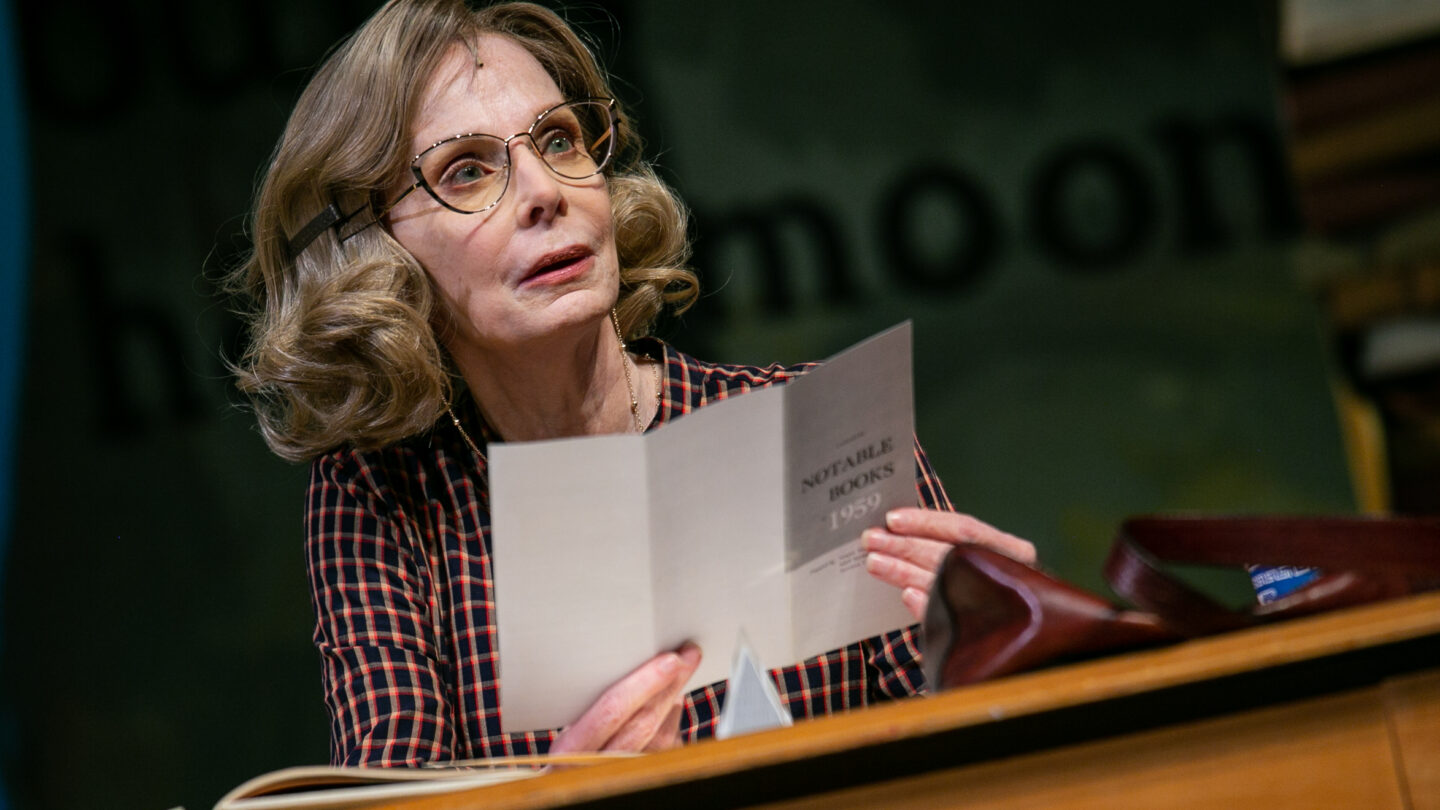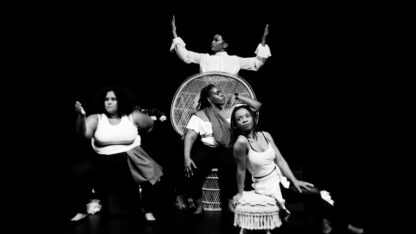Georgia Ensemble Theatre's 'Alabama Story' runs through Sept. 25 at Roswell Cultural Arts Center

It’s sobering to realize that interracial marriage was signed into U.S. law only 55 years ago. In 1959, a children’s book about a black rabbit marrying a white rabbit came under fire for its subject. The ensuing controversy over Garth Williams’ book, “The Rabbits’ Wedding,” was the inspiration for Kenneth Jones’s play “Alabama Story.”
Georgia Ensemble Theatre’s production of the show is on stage through Sept. 25 at the Roswell Cultural Arts Center. Playwright Kenneth Jones joined “City Lights” host Lois Reitzes via Zoom with director Thomas W. Jones II to talk about this play and the still-resonant echoes of America’s struggle for free speech and equality.
Interview highlights:
A fable of two different-colored rabbits getting married, sparking political flames:
“I stumbled upon the story of a librarian named Emily Reed when I was reading the obituaries in the New York Times, and found that she was a librarian who protected this very sweet, very innocent little black and white picture book that inflamed the feelings of segregationists all throughout the South, actually. And I thought there was a fascinating story to be told about a woman who protects the freedom to read and freedom of expression,” said Kenneth Jones. “It seemed like the stuff of drama to me the minute I read about it.”
“This story of censorship made international headlines, and Garth Williams was prompted to certainly make a statement about it,” Kenneth Jones recounted. “He said, ‘I had no intention of making this a political book. This was about fuzzy love. This was not intended to wake the sleeping giant of hate.’ He said such beautiful things about the story that I essentially swiped what his public statement was for the play.”
How America still struggles with protecting freedom of speech:
“My family came up opening night and they said … that it just resonated in a way that’s very contemporary; that ideas are still under assault; that we’re still having to negotiate and manage this division between Black and white and others,” said Thomas Jones. “We would come into rehearsal every day, and without fail, someone would pull up either an article or some reference to some librarian or some book that was being banned, or some community that was outraged; that there were books and libraries, even to the extent of firing librarians around the country because they were protecting, again, the books and the free exchange of ideas.”
Creating human characters within the true story’s framework:
“I took from history the librarian, the state librarian from Alabama, Emily Reed, and the state senator who challenged her, who tried to get her fired as state librarian, who said to her face that this book should be burned,” said Kenneth Jones. “They are the main antagonist and protagonist. They both think that they are the moral centers of their world. In fact, they are, I guess, the moral centers of the world in their brains; hero and heroine, male and female, north and south.”
“This is ultimately a play about white people devouring each other over ideas and over a world that they created. There aren’t a lot of Black folks in this particular piece of history and this historical librarian censorship story,” Kenneth Jones said. “I created two fictional characters, a white woman named Lily and a Black man named Joshua who were childhood friends. They were bound by books together as kids and separated by a tragic family experience, and they reunite … I really wanted to write a one-on-one story about a Black person talking to a white person, hopefully without the Black person lecturing and being angry, and hopefully without the white person being a victim or ‘saving’ the Black person. I wanted to have a free exchange.”
“Alabama Story” is on stage at the Roswell Cultural Arts Center, presented by the Georgia Ensemble Theatre Company, through Sept. 25. Tickets and more information are available at get.org/alabama-story.








